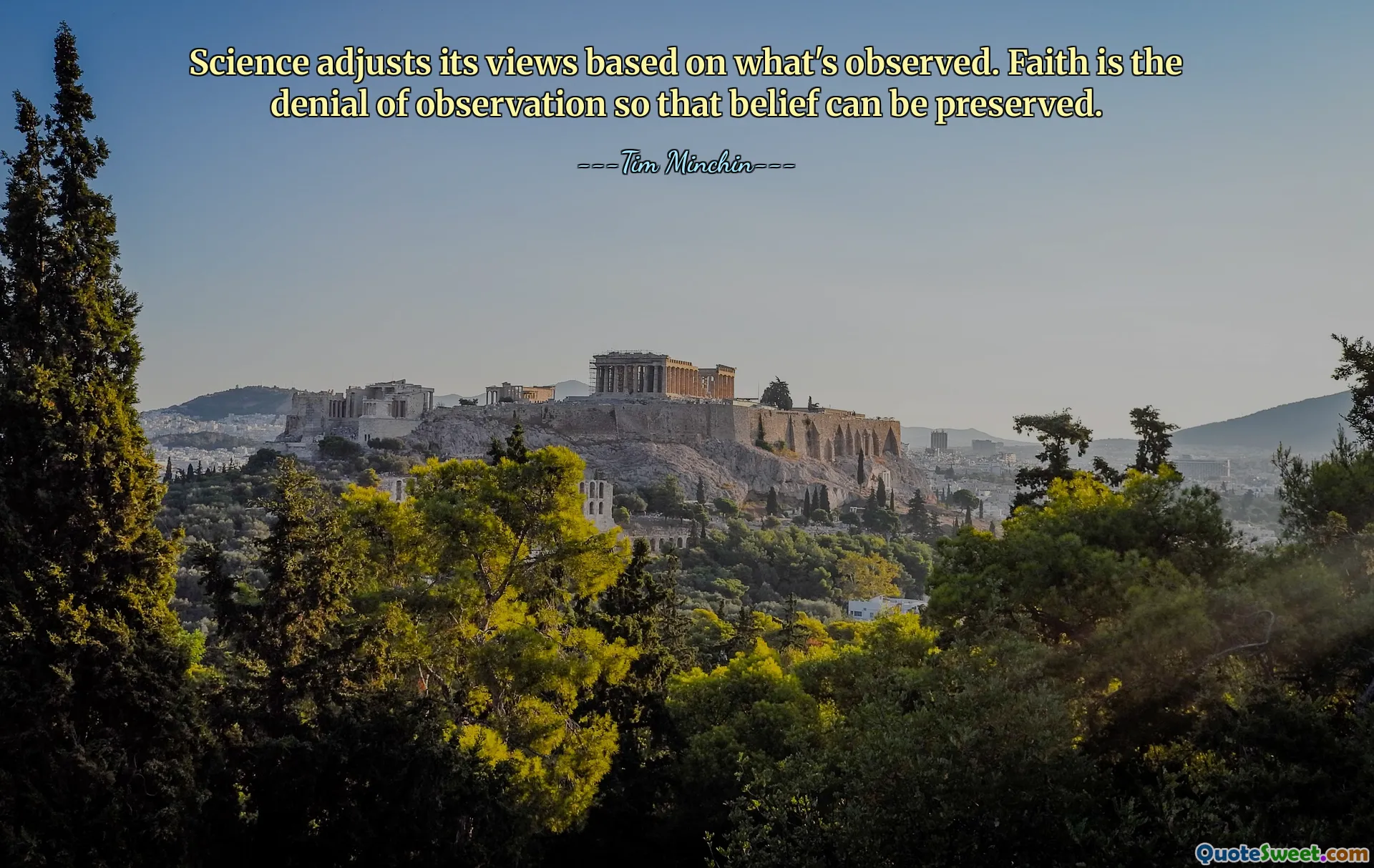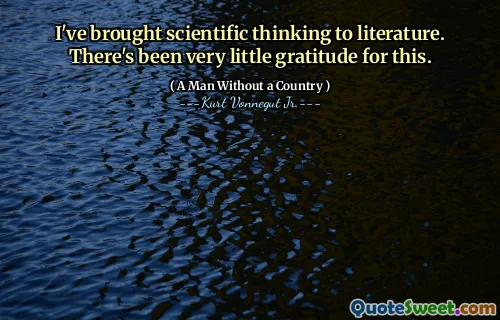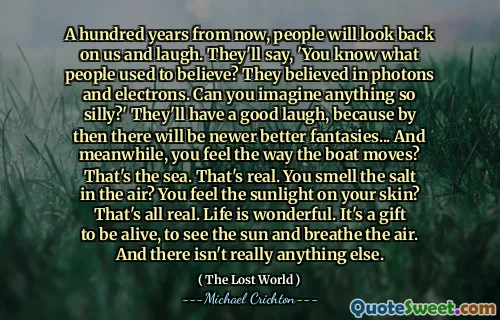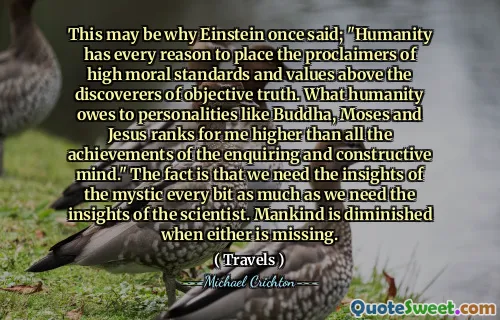
Science adjusts its views based on what's observed. Faith is the denial of observation so that belief can be preserved.
This quote highlights a fundamental contrast between science and faith. Science relies on empirical evidence and observation to shape and refine its understanding of the world. It embodies a dynamic process where beliefs are not fixed but are adaptable based on new data and discoveries. This openness to change underscores the integrity of scientific inquiry—it acknowledges that knowledge is provisional and always subject to revision in light of new evidence.
In stark contrast, faith, as depicted in the quote, signifies a commitment to beliefs that are held regardless of contrary evidence. When faith involves denying or dismissing observational data to uphold certain beliefs, it creates a rigid framework that resists change. This resistance can serve to preserve preconceived notions, often at the expense of truth and objectivity.
Reflecting on this dichotomy, one might consider how both approaches influence human understanding and decision-making. While faith can provide comfort, purpose, and community, it can also hinder progress if it leads to the rejection of empirical findings. Scientific progress depends on questioning, testing, and revising ideas—a process that can be unsettling but is essential for growth.
Understanding the importance of evidence and the willingness to adapt beliefs based on what is observed is critical in avoiding dogmatism. Society benefits when a balance is maintained, where faith and science inform human experience without outright opposition. Embracing scientific inquiry promotes a culture of curiosity, humility, and continual learning, whereas blind faith may safeguard beliefs at the cost of intellectual honesty. Recognizing this difference is key in fostering a more rational and open-minded worldview.











